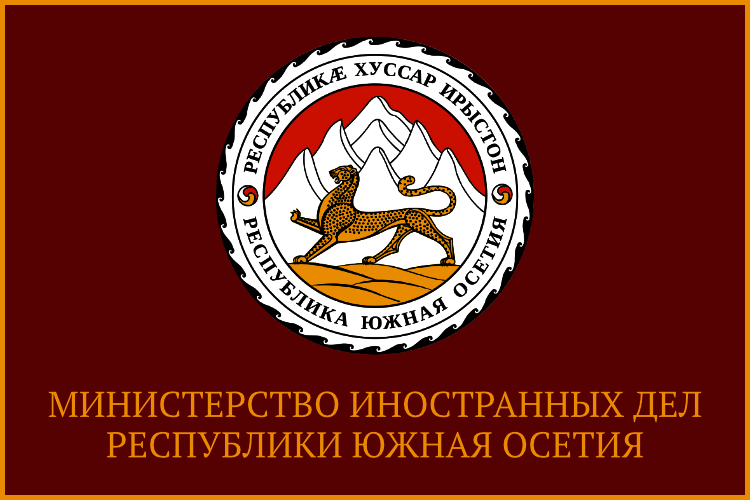Georgian border guards placed at Russian-Georgian border denied entry to Georgia for Russian citizens of Ossetian origin, natives of settlement Kob, who were going to their native village to celebrate a religious holiday. Without explanation, deportation stamps, banning from entry for five years, were placed in their passports, and later, with reference to an order of a higher official, it has been cynically stated that “not a single Ossetian would ever enter the territory of village Kob”.
Similar illegal actions of Georgian authorities are considered in South Ossetia as nothing but gross and cynical violation of fundamental human rights or the main provisions of the Universal Declaration of Human Rights, adopted at the 3rd session of the UN GA upon the Resolution 217A (III) on December 10, 1948 and recommended for all UN Member States.
It is far from being the first case, as it is a continuation of the policy pursued by Georgia in relation to ethnical Ossetians, natives of Ossetian villages in the Kazbegi region of Georgia, which consists in deprivation of the Ossetians from their homes, expropriation and refusal to allow returning to the ancestral territory.
It’s know that historically Tyrsygom, Kudycom and the Kob hollow compose the Eastern part of the ethnical territory of Ossetia and are native places for representatives of several dozens of Ossetian families. Those territories constitute the essential part of a historical and cultural region, which has always been considered as an Ossetian territory.
In Soviet times, without the will of the Ossetians being expressed, upon the voluntaristic decision made by the Bolsheviks, those lands were seized in favor of the newly-established GSSR. Areas of compact settlement of the Ossetians in neighboring Dusheti region of Georgia turned out to be outside of the Ossetian territory as well.
Similar arbitrary changes of administrative boundaries were not single during the Soviet period. Thus, the Union Republic of Abkhazia turned into an autonomous unit within the same Georgian SSR in 1932; the Nagorno-Karabakh was seized in favor of the Azerbaijan SSR, while South Ossetia was seized in favor of Georgia in 1921; and the year 1954 saw the arbitrary decision of Khrushchev when the Crimean peninsula was detached from the RSFSR and seized in favor of the Ukrainian SSR.
Having taken the policy of ethnocide on board, by means of all-round social and economic discrimination, Georgian authorities yet in Soviet times made the utmost and forced the Ossetians to leave their native lands. The conscious extrusion of the Ossetians from the Kazbegi region had lasted since late 80th throughout the 20-year long aggression of Georgia against South Ossetia.
Therefore, the communist Georgia annexed the Eastern part of Ossetia, and for the time being the Motherland is an inaccessible foreign country for natives from dozens of Ossetian villages. A relevant database, containing information about this group of people and their relatives, has been established in Georgia for the purpose of barring them from accessing their homes.
Despite the fact that this issue has numerously times been raised, including at the Geneva discussions, there is no improvement in the state of affairs. Demanding commitment to the principles of humanism from others, they in Tbilisi play with lives of the people, who fell victims to the Bolshevism and the Neo-Nazi ideology.
The facts of blatant discrimination of the Ossetians on ethnical basis at Georgian border once again confirm the provocative and still chauvinistic policy of Tbilisi in relation to the national minorities in general and the Ossetians in particular, which hasn’t changed throughout centuries and culminated in August war of 2008, when the regime of Saakashvili unleashed a war.
Unfortunately, we have to admit that there in Georgia has been no reconsideration of the results, the lessons of war have not been taken into account and the centers of nationalism have not been localized in nine years, which have passed from the treacherous attack on South Ossetia. Instead, it is possible to observe clearly more and more often, how systematic ethnic cleansings are organized in this “democratic state”.
The attempt to create an illusion that Ossetia would once put up with the loss of its lands is doomed to failure. All the Ossetians, who live within or outside of Ossetia, are united in confidence that sooner or later the historical justice would triumph.
Considering the universally recognized norms of international law, the Ministry of Foreign Affairs of the Republic of South Ossetia, expresses a resolute protest against the inhuman actions of Georgian authorities in relation to the citizens of the Republic of North Ossetia-Alania and condemns the ethnocide policy, which has been pursued by the authorities of Georgia since the last mid-century.
At the same time the Ministry is authorized to declare that in case of continuation of a similar practice by Georgian side, the Government of the Republic of South Ossetia, proceeding from the indissoluble unity of the Ossetian nation, its history, culture and the national territory, reserves the right for adequate actions – the revision of the regime of crossing of the frontier between the Republic of South Ossetia and Georgia along the entire perimeter of the border.
Tskhinval, August 28, 2017
